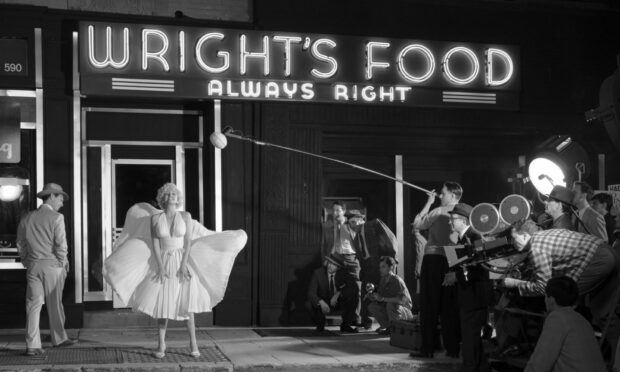I’m not at all surprised that Blonde, a quasi-biopic of Marilyn Monroe (Netflix), is proving to be highly divisive with audiences.
Actually, divisive is maybe too tame a word, since most people seem to utterly despise this film.
I’m not one of those people.
It isn’t perfect, and the running time of just shy of three hours feels excessive for the story being told, but Andrew Dominik’s dazzlingly cinematic film also isn’t the parade of cruelty that critics are making out.
If, by the end, you don’t feel waves of empathy towards Marilyn then I think the problem lies with you.”
That’s not to say Ana de Armas’ fictionalised version of Marilyn/Norma Jean doesn’t suffer, but anyone who views this as a wholly sadistic exercise on Dominik’s part seems to be missing the point of what he’s saying.
If, by the end, you don’t feel waves of empathy towards Marilyn then I think
the problem lies with you rather than the film.
The negative discourse around the film is completely understandable, though.
If you’re watching Blonde expecting a typical biopic of Marilyn’s life, you’ll be disappointed and horrified in equal measure.
That’s not what writer-director Dominik is going for.
His adaptation of Joyce Carol Oates’ novel explores similar themes about the nature of celebrity as he did in his 2007 masterpiece The Assassination of Jesse James by the Coward Robert Ford, and this film feels very much like a nightmarish companion piece.
This often feels more akin to a kaleidoscopic and horrific David Lynch film, where fact and fiction bleed into one another.”
Whereas that movie was an almost dream-like Western, this often feels more akin to a kaleidoscopic and horrific David Lynch film, where fact and fiction bleed into one another.
If there is a narrative through-line to be found, it’s Dominik’s desire to force viewers to watch Norma Jean being eaten alive by Hollywood, men, fame and even the iconic personality that she created.
It isn’t pleasant by any stretch, but I couldn’t take my eyes off it.
You might also like…


Conversation